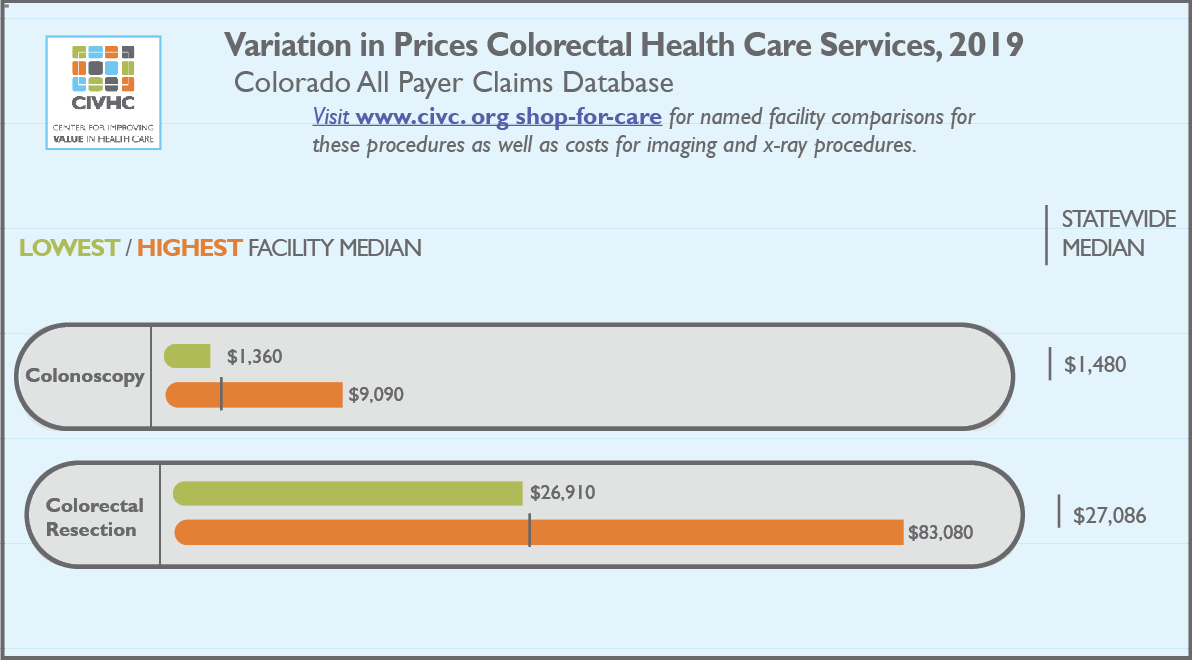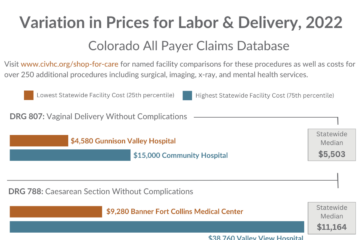Recently updated recommendations urge more Coloradans to receive screenings
Colorectal Cancer is the fourth most common type of new cancer diagnoses in Colorado at a rate of just over 30 people for every 100,000. For Colorectal Cancer Awareness Month in March, we are taking a look at recent changes to the age groups recommended to receive Colorectal Cancer screenings.
There are several types of screening types for Colorectal Cancer. The two main groups are divided between stool-based tests, which investigate stool for signs of cancer and must be performed with more frequency, and visual exams which include the most common and well-known test type: colonoscopy.
In addition to being crucial to identifying a common cancer type, studies have found that Colorectal Cancer screenings ultimately reduce overall health care costs. To illustrate this point, CIVHC’s Shop for Care tool shows that the statewide median cost for a colonoscopy in Colorado is around $1,500, while the statewide cost for a Colorectal Resection, a surgery to remove part of the small intestine which may be performed if cancer is found, costs over $27,000.

To see the costs of both of these procedures and more by named facility, visit our Shop for Care tool.
When to Get Your Screenings
Until recently, it was recommended that adults begin Colorectal Cancer screenings at age 50. However, the United States Preventative Services Task Force (USPSTF) recently expanded the recommended ages for Colorectal Cancer screening to 45 to 75 years, in the May 2021 issue of the Journal of the American Medical Association. The updated recommendations still include adults from ages 76 to 85 speak to their doctor about screenings.
With the changes, USPSTF’s recommendations now match the recommendations of the American Cancer Society, which lowered the age for initiation of screening to 45 years in May 2018.
The updated recommendations are not yet universal. The National Committee for Quality Assurance recommendation, endorsed by the National Quality Forum (NQF), still indicates that screenings should begin at age 50. The NQF sets evidence-based quality measures based on rigorous standards used by the Federal Government and across the country by state programs and private entities. Endorsed measures are periodically visited for updates and maintenance, and the Colorectal Cancer Screening’s most recent endorsement date is 2018. They join the American Gastroenterological Association, which still indicates screenings should begin at age 50 with the exception of Black individuals.
However, even with existing discrepancies in the recommendations, it is important that all Coloradans are aware of the expanding screening age recommendations and those in the 45 and over age range consider talking to their doctor about scheduling a screening appointment.

